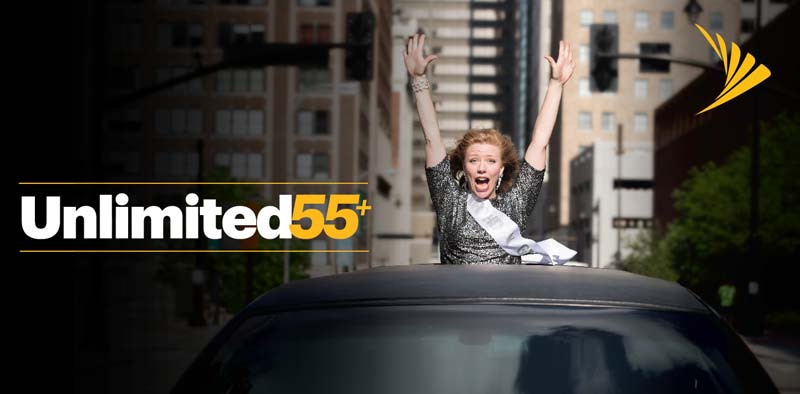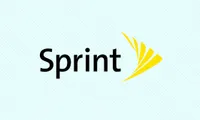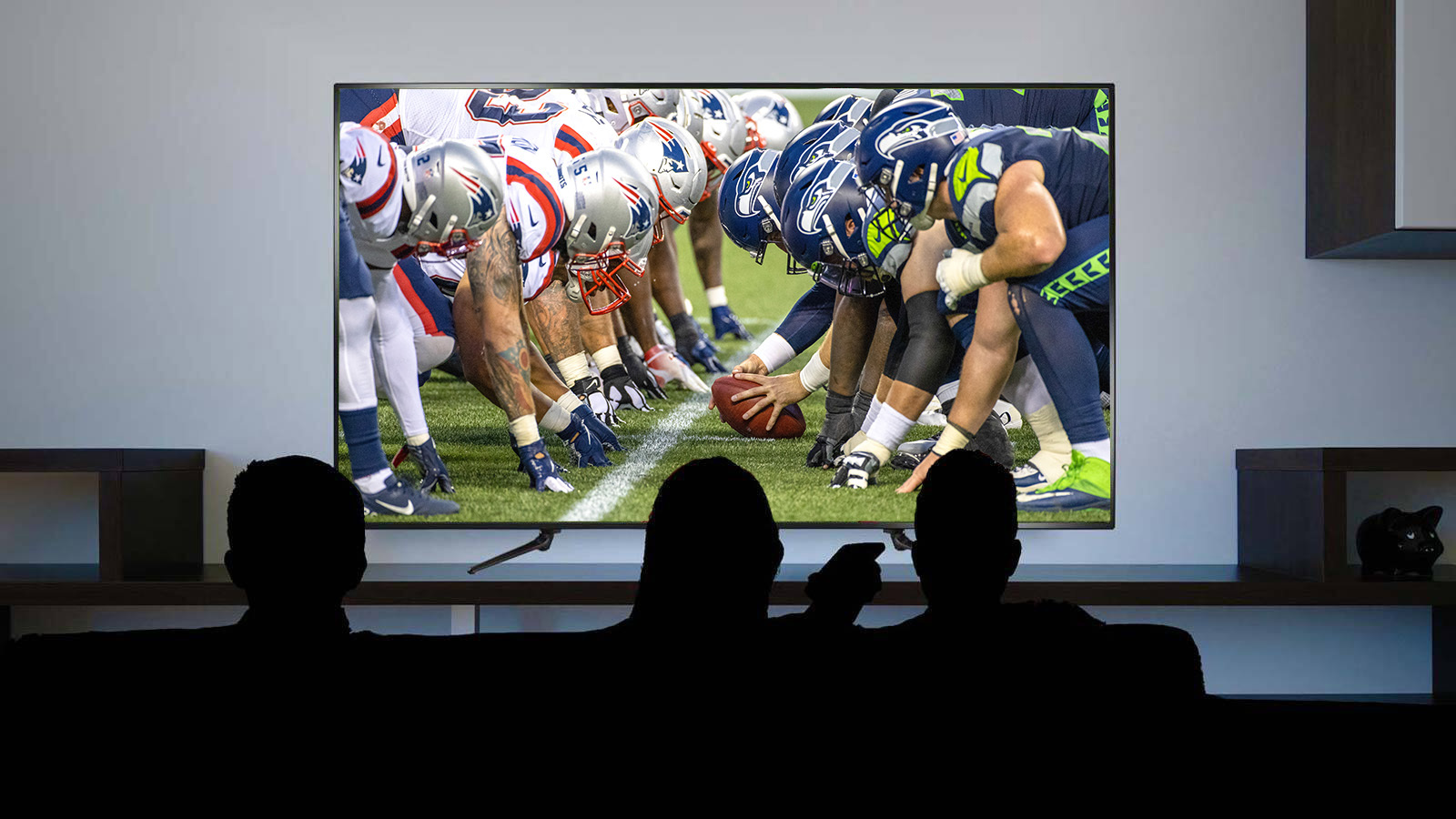Sprint 55 vs. T-Mobile 55+ vs. Consumer Cellular: Which Is Best?
Sprint and T-Mobile have dueling data plans that target customers 55 years and older. How do they compare, and can they beat Consumer Cellular's senior-focused cellphone service?
Here at Tom’s Guide our expert editors are committed to bringing you the best news, reviews and guides to help you stay informed and ahead of the curve!
You are now subscribed
Your newsletter sign-up was successful
Want to add more newsletters?

Daily (Mon-Sun)
Tom's Guide Daily
Sign up to get the latest updates on all of your favorite content! From cutting-edge tech news and the hottest streaming buzz to unbeatable deals on the best products and in-depth reviews, we’ve got you covered.

Weekly on Thursday
Tom's AI Guide
Be AI savvy with your weekly newsletter summing up all the biggest AI news you need to know. Plus, analysis from our AI editor and tips on how to use the latest AI tools!

Weekly on Friday
Tom's iGuide
Unlock the vast world of Apple news straight to your inbox. With coverage on everything from exciting product launches to essential software updates, this is your go-to source for the latest updates on all the best Apple content.

Weekly on Monday
Tom's Streaming Guide
Our weekly newsletter is expertly crafted to immerse you in the world of streaming. Stay updated on the latest releases and our top recommendations across your favorite streaming platforms.
Join the club
Get full access to premium articles, exclusive features and a growing list of member rewards.
Although they may merge in the near future, both Sprint and T-Mobile have launched dueling unlimited data plans aimed at customers 55 years and older. Opt for either carrier's 55+ offering, and you'll get unlimited talk, text and data at a lower monthly rate than what those darn whippersnappers have to pay.

But hold the phone: Seniors looking to save on their monthly phone bill have another option in the form of Consumer Cellular. This wireless provider offers its mix-and-match monthly plans to customers of all ages, but it's tailored especially to seniors, with monthly discounts for AARP members.
Which wireless provider has the best deal for seniors looking for a good plan at a low rate? Let's take a closer look at what Sprint, T-Mobile and Consumer Cellular have to offer.
Senior Phone Plans at a Glance
| Consumer Cellular | Sprint | T-Mobile | |
| Cost for Two Lines of Data | $75 | $70 | $70 |
| Data Amounts | 10GB | Unlimited | Unlimited |
| Age Requirement | None | 55 or older for both lines | Primary account holder must be 55 or older |
| Streaming Restrictions | None | 480p resolution on video; 500 Kbps on music; 2 Mbps on gaming | 480p resolution on video |
| International Benefits | None | Free texting and 2G of data, plus calls at 20 cents per minute in 185+ countries | Talk, text in 140+ countries; 5GB of LTE data in Canada & Mexico; unlimited2G data elsewhere |
Data Plans
T-Mobile introduced its T-Mobile One Unlimited 55+ plan in 2017. After a modest price hike earlier this year, it now costs $70 a month for two lines of unlimited talk, text and data. (Anyone 55 years or older can get a single line of unlimited data for $50 a month under this plan.) If you were to get two lines of unlimited data under the standard T-Mobile One plan, that would cost you $120 a month, so the savings are substantial for seniors.
Consumer Cellular
Sprint Unlimited 55+
T-Mobile One Unlimited 55+
Not to be outdone, Sprint came out with its own plan geared toward customers 55 years and older. The similarly named Sprint Unlimited 55+ plan also promises two lines of talk, text and data for $70 a month. As with T-Mobile, a single line costs $50 a month. The savings from Sprint's standard unlimited plan aren't as big as what you get from T-Mobile, but that's because Sprint prices its unlimited offering more aggressively. Two lines of unlimited data normally costs $100 a month at Sprint.

Note that the pricing at both T-Mobile and Sprint reflects enrollment in the carriers' respective autopay plans. Otherwise, be prepared to tack on another $5 per line each month.
Consumer Cellular takes a different tack. First, you pick a talk plan — either $15 a month for 250 minutes of talk time or $20 for unlimited calling. Then, you augment your plan with data with a Connect plan that also includes unlimited texting. Connect plans start at $5 a month for 250MB of data and ramp up to $40 a month for 10GB. If you add a second line of data, tack on another $15 to your monthly bill.
Get instant access to breaking news, the hottest reviews, great deals and helpful tips.
Put another way, two lines of unlimited talk and text plus a 10GB pool of LTE data at Consumer Cellular would cost $75 a month. AARP members can knock 5 percent off that total for a bill of $71.25. (You can join AARP when you're 50, giving you a five-year jump on the 55+ plans at Sprint and T-Mobile.) That's still a little more than what Sprint and T-Mobile charge, and those two carriers don't cap your data. Consumer Cellular is a better option when you don't need that much data each month, and the carrier lets you adjust your plan during a billing cycle.
Data Plan Rankings
1st place (tie): Sprint and T-Mobile
3rd place: Consumer Cellular
Restrictions
It turns out that unlimited data does have some limitations under both Sprint's and T-Mobile's 55+ plans. Both carriers restrict any video streaming to 480p resolution. That's described as "DVD quality," and while it's likely good enough for most viewers on a smartphone screen, forget about binge-watching anything in glorious HD on your phone.
Sprint takes the restrictions a step further. Under its Unlimited 55+ plan, music streaming is capped at 500 Kbps, while game streaming is restricted to 2 Mbps. (Sprint's regular unlimited plan puts limits on music and game streaming, too, but they're much more generous.) T-Mobile doesn't have music- and game-streaming limits for its Unlimited 55+ plan.
MORE: What Is Sprint Unlimited 55+ and Is It Worth It?
T-Mobile's plan for seniors is less restrictive in other ways. For starters, it's available to current Uncarrier customers as well as people switching over from other carriers. The Sprint offer is available only to people who want to switch to Sprint. Dive into the fine print on T-Mobile's offer, and you'll find out that only the primary account holder needs to be 55 years or older. That's helpful for potential subscribers with a younger partner or a child they'd like covered by the plan. In contrast, both people who sign up for Sprint's 55+ plan need to be 55 years or older.
T-Mobile's Unlimited 55+ plan has another restriction worth mentioning: People who get their wireless service through that plan aren't eligible for the carrier's Netflix benefit. T-Mobile, on the other hand, picks up the $11 monthly cost of a Netflix subscription when you have two or more lines of unlimited data.
We haven't mentioned restrictions at Consumer Cellular yet because there aren't any limitations on streaming with that service. You don't even have to be a senior to get your phone service through Consumer Cellular, though younger customers won't qualify for the AARP discount.
Restrictions Rankings
1st place: Consumer Cellular
2nd place: T-Mobile
3rd place: Sprint
Network
You shouldn't consider signing up with a wireless carrier without first figuring out how its network performs. And while performance can vary depending on where you are, T-Mobile consistently outperforms Sprint in different tests.
That's true of our last round of LTE network speed testing in six cities (tests we're in the process of updating). Third-party testing firm OpenSignal also puts T-Mobile ahead of Sprint, calling the Uncarrier the "operator to beat" in its most recent tests. Sprint can at least take comfort from RootMetrics' last report, where it finishes ahead of T-Mobile in that testing firm's rankings.

All of this is good news for Consumer Cellular. As a mobile virtual network operator (MVNO), it uses the networks of other carriers — in this case, both AT&T and T-Mobile. So if T-Mobile has strong performance in your area, so will Consumer Cellular. And there's always AT&T's network — another strong performer in our tests — if that's better where you live.
Network Rankings
1st place: T-Mobile
2nd place: Consumer Cellular
3rd place: Sprint
Phone Selection
T-Mobile and Sprint don't place any restrictions on which phones you can use with their 55+ plans. You can even bring your own phone, provided that the device works on that carrier's network.
The two big carriers are also fairly even matched when it comes to smartphone selection. You'll find comparable flagship phones from Apple, Samsung and LG. Sprint offers a few interesting exclusives, like the Essential Phone and the LG V30+. (T-Mobile sells the smaller-capacity V30.) T-Mobile sells its own branded device, the T-Mobile Revvl, if you'd prefer a budget model. Sprint tends to offer 18-month leases on phones if you don't buy them outright, while T-Mobile lets you pay off phones in 24 monthly installments.
MORE: The Best Cellphone Plans for Families and Individuals
The selection at either big carrier is more extensive than that of Consumer Cellular.You'll find 19 phones at Consumer Cellular, though that total includes flip models. However, Consumer Cellular does sell the latest iPhones and the Galaxy S9 and S9+ if you're looking for a top flagship. Seven of the phones currently on sale at Consumer Cellular cost $200 or less, and the carrier is unique among MVNOs in letting you pay off phones in installments.
Phone Selection Rankings
1st place: Sprint
2nd place: T-Mobile
3rd place: Consumer Cellular
Benefits
Consumer Cellular doesn't have much to offer here, other than a 30-percent discount on mobile accessories for AARP members. You can also try out the service for free over 30 days, 300 minutes, 300 texts or 300MB of data (whichever comes first), with AARP members eligible for a slightly longer trial. But there's no coverage when you go overseas.
That's a big difference from what's available from Sprint and T-Mobile, both of which seem to be targeting globe-trotting seniors. With Sprint's 55+ plan, you get free texting and data roaming at 2G speeds in 185-plus countries; voice calls are 20 cents a minute. You have the option to pay for higher-speed data if you want.
T-Mobile's 55+ plan doesn't cover as many countries — 140 or so — but calls, texts and data are all free (though data is slowed to 2G speeds). In Canada or Mexico, you can use up to 5GB of LTE data at no additional cost.
Both Sprint and T-Mobile offer unlimited hotspot data to seniors, though speeds are slowed to 3G. As with T-Mobile's standard unlimited plan, seniors on the Unlimited 55+ plan get an hour of free data plus unlimited texting on flights equipped with Gogo wireless service.
Benefits Rankings
1st place: T-Mobile
2nd place: Sprint
3rd place: Consumer Cellular
Bottom Line
In the battle of unlimited data plans targeting seniors, T-Mobile's superior network carries it to the win. We also like that T-Mobile's Unlimited 55+ plan is open to new and current customers and that only one person on the two-line plan needs to prove that they're 55 years or older.
| Consumer Cellular | Sprint | T-Mobile | |
| Data Plans (30 points) | 26 | 30 | 30 |
| Restrictions (15 points) | 15 | 10 | 12 |
| Network (20 points) | 17 | 15 | 18 |
| Phone Selection (15 points) | 11 | 14 | 13 |
| Benefits (20 points) | 12 | 17 | 18 |
| Overall | 81 | 86 | 91 |
Despite its own focus on seniors, Consumer Cellular's lack of perks and limited data pool mean it really won't meet the needs of seniors who want unlimited data. However, if your data needs are more modest, the monthly savings available through Consumer Cellular make it a compelling alternative.
Credit: Sprint
Philip Michaels is a Managing Editor at Tom's Guide. He's been covering personal technology since 1999 and was in the building when Steve Jobs showed off the iPhone for the first time. He's been evaluating smartphones since that first iPhone debuted in 2007, and he's been following phone carriers and smartphone plans since 2015. He has strong opinions about Apple, the Oakland Athletics, old movies and proper butchery techniques. Follow him at @PhilipMichaels.
-
kep55 The downside to any of these plans is all the carriers basically gouge the users with their pricing for both air time and phones.Reply -
toyclyde I went with Tracfone 6 months ago and simply love it. I got the Samsung Galaxie J3 for $99, ( which is currently going for $69). I bought a 365 day prepaid plan for $125, which works out to $10.42 month. I don't make many calls or used much data.Reply -
GR8BigCheese I'm surprised that the T-Mobile pricing structure isn't mentioned at all. Sprint charges a lot for taxes and fees while T-Mobile absorbs it (as it should be). Advertised prices should be "all-in". With Sprint, you pay close to $10 extra in some areas.Reply -
bockofma Searched for the least expensive cell service for my spouse who rarely uses her telephone. Used Tracfone for a year, and then learned about Red Pocket Mobile. Couldn't be more satisfied! Price, customer service, reliability - everything - is great!Reply -
sk_c You left out one critical aspect: Customer Service. Having been with T-Mobile and now Consumer Cellular (for the last several years), my experience has been that there is absolutely no comparison. Consumer Cellular is fantastic to deal with. My time with T-Mobile was anything but!Reply
 Club Benefits
Club Benefits














